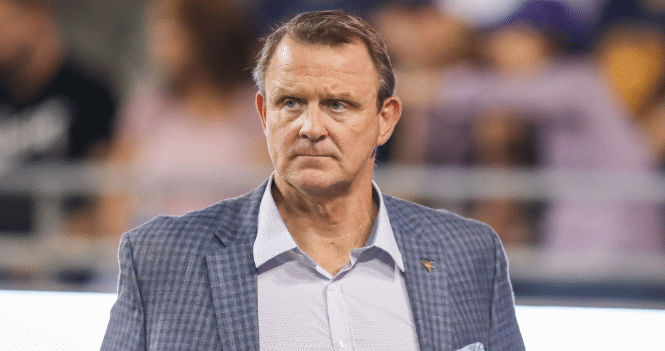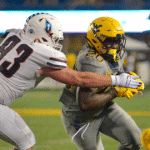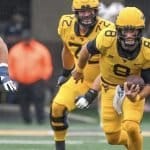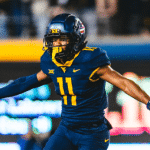
Morgantown, West Virginia – West Virginia has suddenly, unexpectedly become a major player in the ever-changing world of college athletics and the playing field is now finally level.
Since the inception of NIL, West Virginia has been seen as too poor, not innovative enough and doomed to fail in a disastrous fashion. Over the past several years, West Virginia has been slow to adapt and evolve in today’s landscape, and the athletic programs have suffered because of it.
Shane Lyons, the former director of athletics for the Mountaineers, had a background in compliance. Following rules and staying out of trouble was the most important aspect of running the athletic department for Lyons. While other programs around the country – let’s use Kentucky as an example – were stretching and bending the rules, West Virginia was strictly abiding by them. That’s very noble, but it makes it virtually impossible to compete with the programs who are finding loopholes and ways around the rules.
When Shane Lyons was fired, he met with university president Gordon Gee and this was essentially the reason he was given for his dismissal.
“I asked President Gee, ‘Why are we making the change?’” Lyons said. “One thing that came up was him saying, ‘We’re not aggressive enough in Name, Image and Likeness.’”
I support NIL 100%. That’s just a different pot of money. In speeches I give, I tell people they have three choices . They give it to scholarships, to operations and capital projects or to the Trust. They wanted our coaches to be more involved. I understand they wanted us to help identify fundraisers, and that’s where there can be a problem. We can do education, which we do, tax and contract litigation for our student athletes. We do that. But making the deal itself, we can’t get involved in that. If we start making the deal or identifying sponsors or those to give to the trust, we are getting closer and closer to running into Title IX implications.”
And there you have it.
Lyons was hesitant to adapt and bend the rules and find loopholes, which unfortunately is absolutely necessary in today’s world. One of the first things that new director of athletics Wren Baker did in his new role was advertise Country Roads Trust by doing an interview with them. He spoke of how the trust could benefit the program and its student-athletes and almost spoke of it in terms of a partnership without actually using the word “partnership.”
Bob Huggins’ willingness and ability to find loopholes in the system has landed him two of the very best players available in the transfer portal in Kerr Kriisa and Jesse Edwards. Both are foreign players and although the exact loophole is unclear, West Virginia clearly found a way around the rules that prevent international players from being paid the same as American-born players.
In other words, West Virginia has not only started to become willing to play the game, they have also started paying players more than other universities. If the rumors are true of Kriisa and Edwards making hundreds of thousands of dollars to play basketball for the Mountaineers, it’s hard to imagine that that would have happened under Lyons.
With a very organized, well-oiled machine in the Country Roads Trust collective, as well as the university’s willingness to do whatever it takes to compete with the very best programs from around the country, the Mountaineers are now in position to be competitive and actually start winning again.






